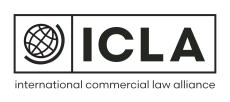The Minister of Immigration, Hon Michael Woodhouse, has announced policy changes to the Essential Skills work visa category. These changes are the result of extensive lobbying and feedback gathered through the consultation process the Ministry of Business, Innovation & Employment recently undertook. Although the changes do not amount to a complete about-turn, they represent a softening of INZ’s previous stance and should provide welcome relief for many employers.
Summary of policy
Remuneration bands are to be introduced to help determine skill levels – Essential Skills work visa holders will be classified as highly-skilled, mid-skilled, and lower-skilled.
Those work visa holders that are classified as lower-skilled will be able to obtain work visas for a maximum duration of three years, after which they will be subject to a “stand down” period offshore, before they can obtain a further Essential Skills work visa.
Lower-skilled work visa holders will not be eligible to have their family members accompany them to New Zealand (unless they can qualify for visas in their own right).
What has changed?
The level of remuneration required for a work visa holder to be classified as mid-skilled has been lowered. The new classifications are as follows:
| ANZSCO Skill Level Classification | Stand-down period? | Dependents? | ||
| Highly skilled | $73,299+ | 1-5 | NO | YES |
| Mid-skilled | $41,538 – $73,299 | 1-3 | NO | YES |
| Lower skilled | less than $41,538 | 1-5 | YES | NO |
Previously, to be classified as mid-skilled, a work visa holder would need to be in an ANZSCO skill level 1-3 occupation and be earning at least $23.49 per hour (or $48,859p.a. based on a 40 hour work week). This income threshold has now been reduced to approximately $19.97 per hour (or $41,538p.a. based on a 40 hour work week).
This reduced income threshold for enabling classification as mid-skilled means that more existing work visa holders already in New Zealand will be classified in this category, thus avoiding the stand-down and no-dependent parts of the policy. It also means that for those work visa holders that are currently classified as lower-skilled, it will be easier for them to make the transition to being classified as mid-skilled (by increasing their hourly rate incrementally over the three year period that they will be eligible for work visas). Provided they are able to achieve an hourly rate of at least $19.97 by the end of the three year period, they should then be able to be classified as mid-skilled and will not be subject to the mandatory stand-down period of 12 months offshore.
The income threshold rates are likely to be reviewed on a regular basis, dependent on economic factors.
Who will this impact and when?
The new policy will take effect from 28th August 2017 onwards.
INZ has announced that the three year maximum duration will start from the date the next lower-skilled Essential Skills work visa is granted, following the introduction of the new policy.
Therefore, it seems that applications that are lodged prior to 28th August may be able to get their next visa issued as at the current policy, meaning they could potentially extend their ability to stay in New Zealand beyond the three year maximum. Employers of lower-skilled migrant workers should consider whether it is worthwhile lodging an urgent application for any existing work visa holders to take advantage of this opportunity. This approach would be particularly relevant where it is envisaged that an employee’s pay rate will not reach the mid-skilled level within the next three years and/or for those work visa holders whose current visa is set to expire before then end of 2017.
For those family members of work visa holders that are already in New Zealand, they will be able to remain here for the duration that the Essential Skills visa holder remains legally in New Zealand. This means that family members already in New Zealand will effectively be able to stay here for a maximum of three years from the date of the next work visa issued under the new policy.
Other pending policy changes
The Minister also indicated that Phase Two of the Government’s review will look at other issues which have come to light during the consultation, including:
- Developing a framework for further targeting of immigration settings by sectors and regions,
- Developing proposals to promote and reward good behaviour by employers, and
- Making sure seasonal work visas reflect seasonal work.



